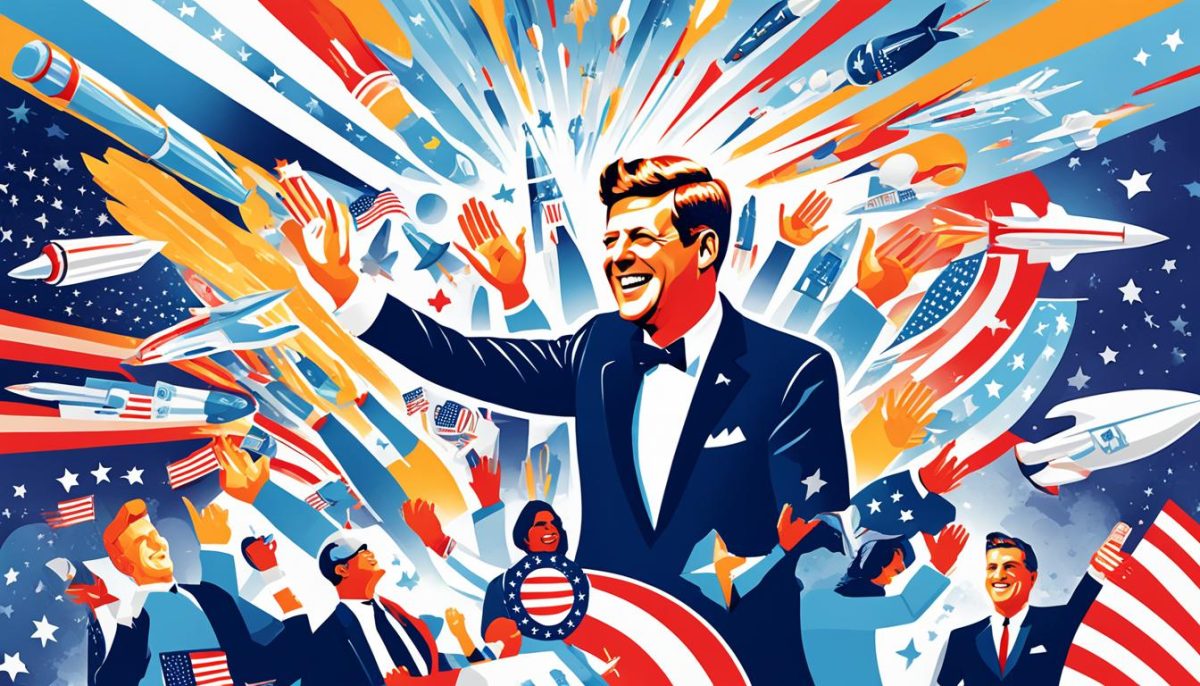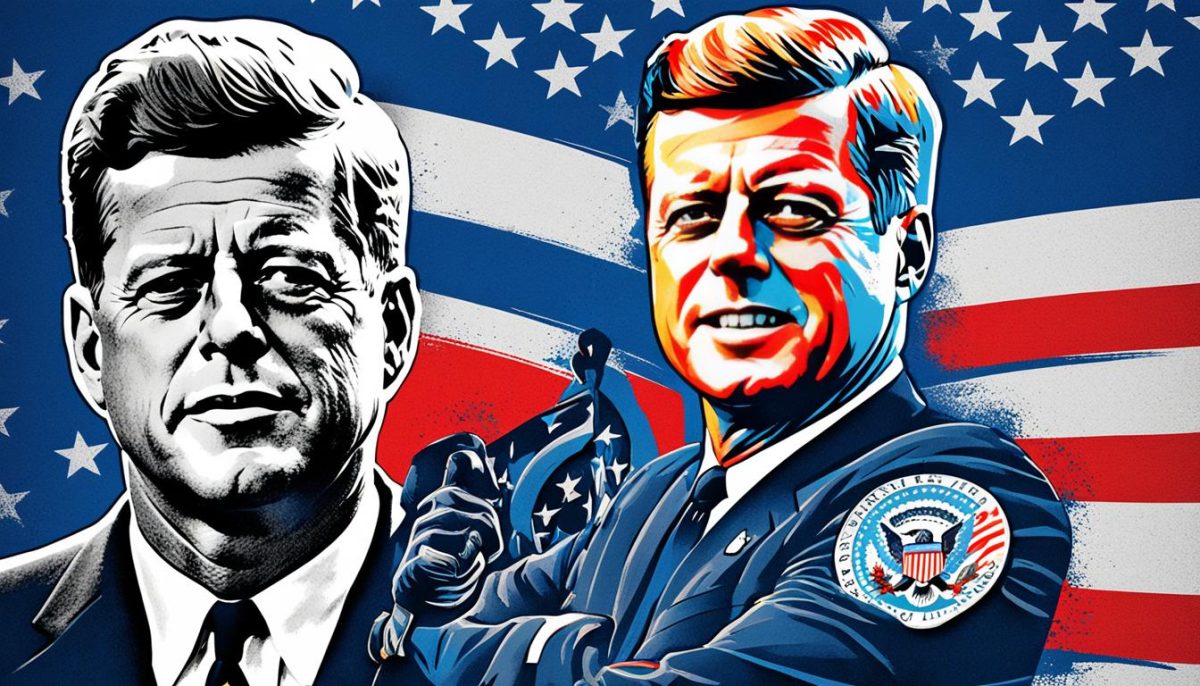John F. Kennedy, a name synonymous with greatness, continues to be honored as one of the most influential figures in American history. His legacy looms large, with a lasting impact on both the nation and the world. As we pay tribute to this remarkable leader, let us delve into the extraordinary life and enduring influence of John F. Kennedy.
Remembering John F. Kennedy’s Life and Achievements
As we reflect on the legacy of John F. Kennedy, it is essential to understand the remarkable life and accomplishments of this influential figure. Born on May 29, 1917, in Brookline, Massachusetts, Kennedy grew up in a family dedicated to public service. His father, Joseph P. Kennedy, held prominent positions in government and served as the United States Ambassador to the United Kingdom.
John F. Kennedy’s life was marked by a sense of duty and a passion for making a positive impact on society. He excelled academically, graduating from Harvard University in 1940, before joining the Navy and serving with distinction during World War II. His bravery and leadership earned him the Navy and Marine Corps Medal as well as the Purple Heart.
After the war, Kennedy ventured into politics, winning a seat in the U.S. House of Representatives in 1946. He continued his political ascent, serving in the Senate before capturing the nation’s attention with his historic presidential campaign in 1960. On January 20, 1961, John F. Kennedy was inaugurated as the 35th President of the United States.
John F. Kennedy’s achievements as president were numerous and impactful. His charismatic leadership and ability to inspire the nation led to groundbreaking legislation and transformative policies. Notably, he launched the Peace Corps to promote global understanding and cooperation, advanced the civil rights movement, and established the Alliance for Progress to improve relations with Latin American countries.
In addition, Kennedy’s commitment to space exploration resulted in the Apollo program and the famous moon landing in 1969. He also successfully navigated the Cuban Missile Crisis, a tense standoff between the United States and the Soviet Union that brought the world to the brink of nuclear war.
With his youthful energy, charisma, and profound vision, John F. Kennedy captured the hearts and minds of the American people and left an indelible mark on our nation’s history.
As the table below illustrates, John F. Kennedy’s life and achievements embodied his dedication to public service, innovation, and diplomacy:
| Key Aspects | Accomplishments |
|---|---|
| Civil Rights | Advocated for civil rights legislation, leading to the passage of the Civil Rights Act of 1964 |
| Space Exploration | Launched the Apollo program, which culminated in the first moon landing |
| Foreign Relations | Established the Alliance for Progress to improve relations with Latin American countries |
| Crisis Management | Successfully defused the Cuban Missile Crisis, averting a potential nuclear war |
The Legacy of John F. Kennedy: Shaping America’s Future
John F. Kennedy left a remarkable legacy that continues to shape America’s future. His influential policies, initiatives, and visionary leadership have had a lasting impact on the nation and its people.
One of Kennedy’s most notable achievements was his commitment to the advancement of civil rights. He played a crucial role in promoting racial equality and social justice, challenging discriminatory practices and advocating for equal rights for all citizens. Through his leadership, Kennedy paved the way for significant legislative changes, such as the Civil Rights Act of 1964, which prohibited discrimination based on race, color, religion, sex, or national origin.
Kennedy’s dedication to space exploration also left an indelible mark on America’s future. He set an ambitious goal for the nation to land a man on the moon, rallying the nation behind the idea of space exploration and technological advancement. This led to the historic Apollo 11 mission in 1969, when Neil Armstrong became the first person to set foot on the lunar surface.
“We choose to go to the moon in this decade and do the other things, not because they are easy, but because they are hard.” – John F. Kennedy
Furthermore, Kennedy’s commitment to economic growth and development propelled America forward. He emphasized the importance of an expanding economy and invested in programs like the New Frontier to stimulate innovation and job creation. His economic policies laid a foundation for future prosperity and set the stage for America to become a global economic powerhouse.
The assassination of John F. Kennedy on November 22, 1963, not only marked a devastating loss for the nation but also had a profound impact on America’s history. The tragic event sparked national grief and brought about a period of reflection and introspection as the nation mourned the loss of a beloved leader.
The legacy of John F. Kennedy continues to inspire and shape America, reminding us of the power of leadership, vision, and unwavering dedication to progress. His enduring influence will forever be felt in the fabric of our nation.

| Policy/Initiative | Impact |
|---|---|
| Civil Rights Act of 1964 | Prohibited discrimination based on race, color, religion, sex, or national origin |
| Apollo 11 Mission | First manned mission to land on the moon, inspiring a new era of space exploration |
| New Frontier | Invested in innovation and job creation, leading to economic growth and development |
The Enduring Influence of John F. Kennedy
John F. Kennedy’s influence continues to reverberate through American society, even decades after his untimely death. His visionary leadership and commitment to social progress have left an indelible mark on the nation.
One of the key ways Kennedy’s influence endures is through the inspiration he provides to current and future leaders. His charisma, eloquence, and ability to inspire hope have set a standard for presidential leadership. Many political figures today strive to emulate his ability to connect with the American people and articulate a compelling vision for the future.
Beyond inspiring leaders, Kennedy’s ideals continue to shape public discourse. His emphasis on civil rights, social justice, and the pursuit of a more equitable society remains relevant and powerful. The ongoing conversations surrounding these issues in America owe much to the groundwork laid by Kennedy and his administration.
Furthermore, Kennedy’s influence extends beyond domestic matters and into the realm of foreign affairs. His handling of the Cuban Missile Crisis showcased his diplomatic acumen and solidified the United States as a global superpower. His commitment to promoting peace and stability still serves as a guiding principle for American foreign policy.
In conclusion, the influence of John F. Kennedy is far-reaching and enduring. His ideals, leadership style, and commitment to progress continue to shape the nation’s trajectory. As America faces new challenges and seeks to forge a brighter future, it would do well to remember the lessons and inspiration provided by this remarkable statesman.

